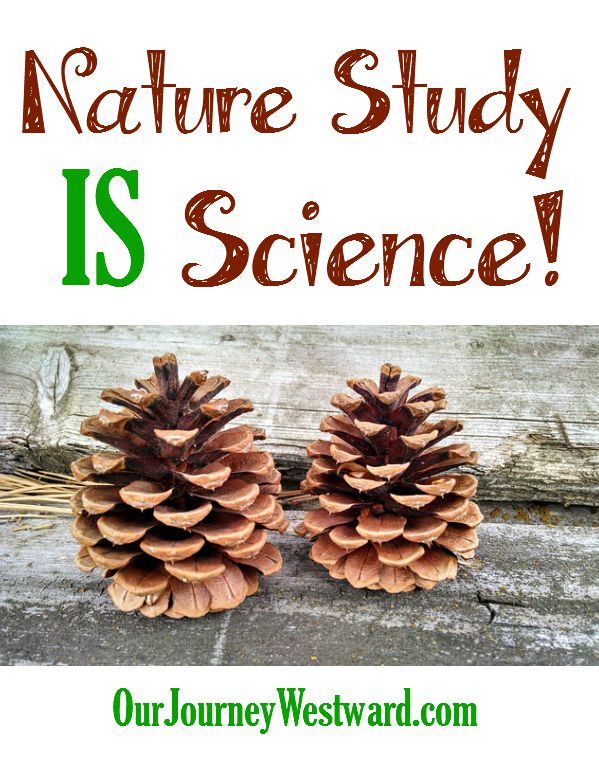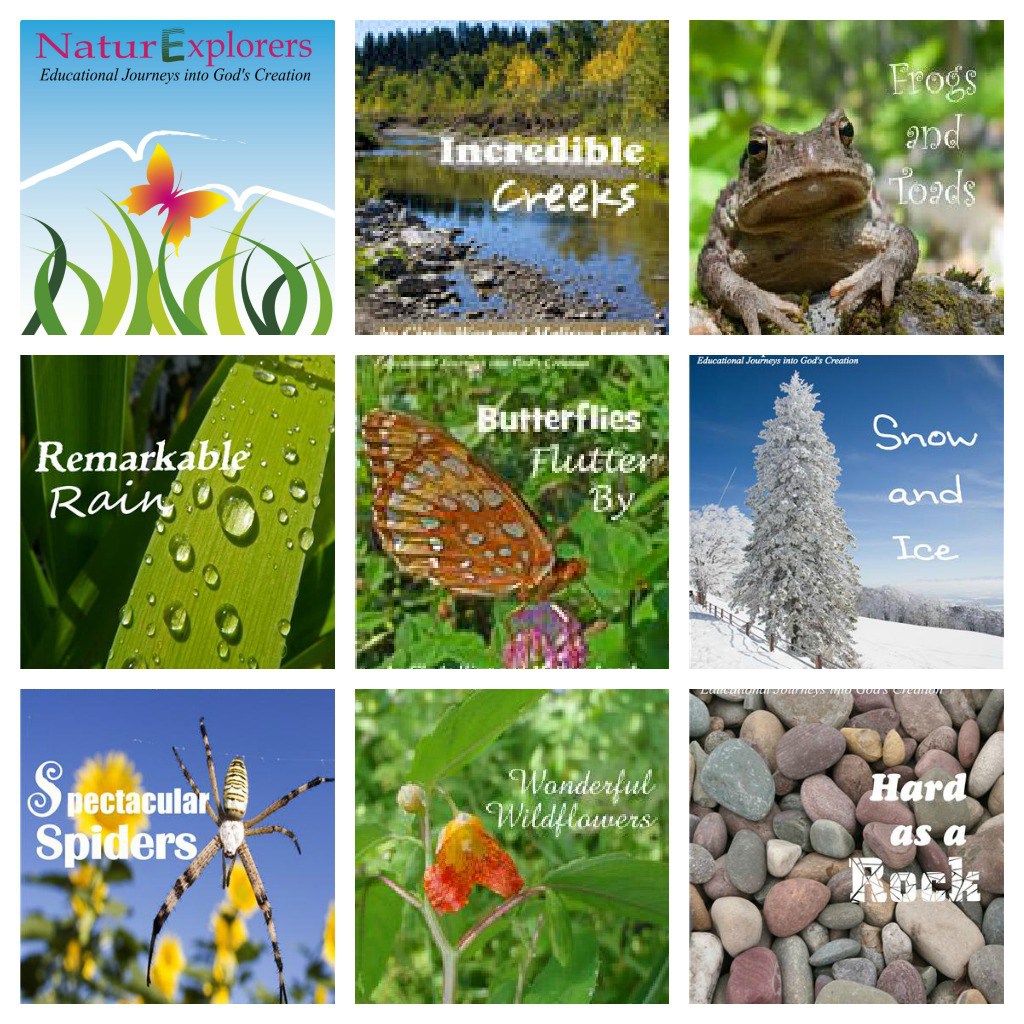Nature Study IS Science
Wait.
If nature study is science, does that mean we could do nature study instead of science textbooks?
Does that mean I could (and maybe should) view nature study as more than just an extra in our homeschool schedule?
Are you sure our time spent outdoors in nature can really count towards real science instruction?
Yes! Yes! Yes!

The very essence of nature study is science. Of course, there are all sorts of additional skills that happen alongside nature study – geography, art, writing, reading, research, and even math – but the very purpose is centered fully on science. Real science:
- botany
- animal science
- earth science
- astronomy
- physical science
- chemistry
You name it – most science topics can easily be taught in what I like to call nature’s science lab.
You know how homeschoolers talk all the time about hands-on learning and real-life learning? Nature study doesn’t get any more real-life or hands-on! With the help of a field guide, an informational book from the library and/or a NaturExplorers study, you and your children can make amazing discoveries and gain a deep understanding of real science and the interconnections between science disciplines.
When my children are in first through eighth grades, much of their science instruction is accomplished through nature study. I’ll throw in the occasional unit study (or textbook study) about topics which are harder to learn in nature, like magnetism or simple machines, but the bulk of science happens in nature.
And, they have always been ready to dive into high school level science textbooks.
This doesn’t mean we’re outside every day! Nature walks are the discovery lab for whatever topic we may be learning. For instance, if we’re studying deciduous trees, we will obviously take nature walks to observe trees, draw them, label their parts, measure them, compare them, etc. We’ll also spend time indoors reading books, researching questions, performing experiments and completing projects.
If this sounds wonderful, but you have no idea where to start, I think you might really like the NaturExplorers series!
You most certainly don’t have to spend your entire science time each week focusing on nature study topics. A weekly nature walk in place of regular science studies can be just as full of learning!
Either way, I would suggest going on walks with a purpose in mind. If your goal is real science instruction, then simply taking a nature walk with no plan of study likely won’t fulfill that goal. Just as you would have a goal in mind for any other science lesson, you need to have a goal for nature walks – even if that goal is simply practicing detailed observation skills with whatever wonderful things you find along the way.
Nature study is fun! Nature study promotes healthy families! Nature study is real science! Enjoy it!
Check Out These Awesome Nature Resources!
-
 Math in Nature$20.00
Math in Nature$20.00 -
 40 Nature Walks: Volume 1$24.00
40 Nature Walks: Volume 1$24.00 -






Love this! We have mostly done nature studies. Some experiments here and there but we love to be outdoors and then study about it, or vice versa 🙂
Cindy,
Which one of your Nature Explorers would you suggest for my 2nd grade daughter? We are also doing Apologia Astronomy this year too but want to add a Nature Study once a week. Any ideas or thoughts? Thanks so much!!!!!!:):)
Hi Deanna! 2nd grade girls seem to respond really well to Wonderful Wildflowers, Butterflies Flutter By, Fruits and Nuts, A Fungus Among Us, Coping with the Cold, Beautiful Birds, and Peaceful Ponds. Any of them would be appropriate for her age, though. I’d love to hear how your weekly nature studies go!
Thank you so much Cindy!!! You are always so helpful! I’m super excited to start our nature studies! Love all of your ideas and advice! What a blessing you are to my family and I! Thank you again!:)